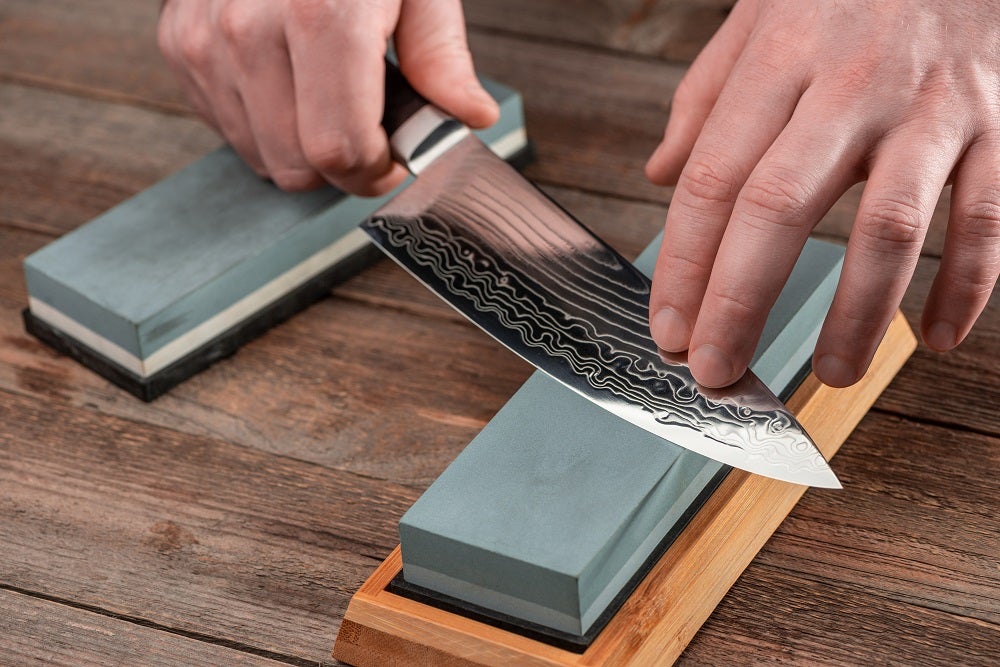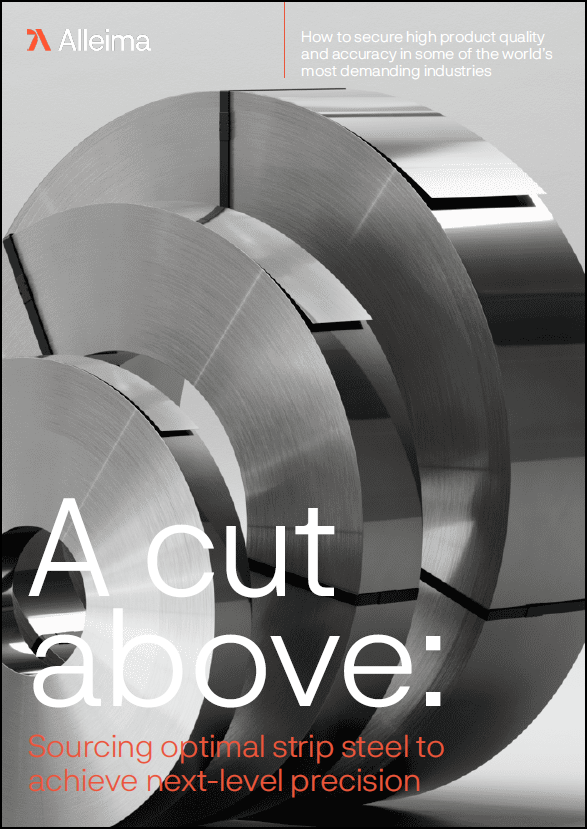
Finding the right knife steel for any given application, from chef’s tools to surgical knives to shaving heads, comes down to balancing out performance requirements. The three main areas of performance to consider are edge performance, toughness, and corrosion resistance.
Edge performance consists of sharpness, edge stability and wear resistance, while toughness refers to a knife’s resistance to cracking. Since high corrosion resistance comes at the cost of edge performance, the balance must take the application into consideration.
Alleima’s team of strip steel experts work with knife manufacturers to supply steel that is perfectly configured for their application: providing the right resistance to micro-chipping or edge rolling, toughness enhanced by a homogeneous structure free from impurities and large carbides, and offering the appropriate level of corrosion resistance.
The company bases its production on 82% recycled steel, in addition to using an electric arc furnace that is run on fossil-free electricity, making them the ideal partner to meet ambitious green goals.
Alleima’s range of steel alloys includes the recently introduced Damax, its next-generation Damascus knife steel that features the same quality as handcrafted steel with up to 135 layers of martensitic stainless steel.
Jonas Nilsson, technical business development project manager, explains how Alleima supports its customers to find the perfect balance for their strip steel requirements.
Q: What types of steel are used for knife manufacturing?
Jonas Nilsson (JN): The steel type that is used in most knives today is the martensitic stainless chromium steels that Alleima started developing for edge applications in 1921 – more than 100 years ago.
The martensitic stainless chromium steels are typically alloyed with more than 13% chromium to make them stainless, and any further addition of chromium increases the resistance to corrosion. The amount of carbon is adjusted to reach the desired combination of hardness, toughness and wear resistance. Higher carbon content gives higher hardness and wear resistance in most cases, but at the same time typically reduces toughness, as well as corrosion resistance to some extent. Often, one can see small additions of molybdenum to further increase corrosion resistance in some environments, and vanadium for wear resistance.
Q: How does Alleima stand out from the competition when it comes to knife steel manufacturing?
JN: Alleima’s metallurgy is mainly built on recycled material and fossil-free electricity. Diesel for internal transports and gas used in furnaces are partly exchanged to non-fossil alternatives. Alleima has committed to reaching a 50% reduction of greenhouse gas emissions by 2030 vs 2019, and achieving net zero latest by 2050.
Alleima has a long history of delivering material to demanding producers of razor blades, surgical blades, industrial knives, and handheld knives around the world. Alleima has excellent control over all production steps, from recycled material, metallurgy, hot working, cold working, and finishing, which allows for very consistent and predictable strip material properties.
Around the globe, dedicated salespersons with experience cooperating with technical experts in R&D and production work with customers to develop products together. Through its knowledgeable and experienced sales force, Alleima does what is possible to support customers to select the right material for their specific applications and requirements. If needed, technical experts are involved.
Q: Where is Alleima knife steel manufactured?
JN: The knife steels from Alleima are manufactured in Sandviken in central Sweden. This includes everything from the testing and sorting of recycled steel through to metallurgy, casting, hot working, cold working, and finishing. Alleima has a broad portfolio of different martensitic stainless knife steels for different applications, from highly corrosion-resistant grades with modest demands on hardness and wear resistance, all the way up to very wear-resistant grades with extreme hardness for industrial needs.
Q: How is Alleima strip steel contributing to emissions savings?
JN: Alleima’s metallurgy is mainly built on recycled material. The energy mix in Sweden is based on hydro power and wind power to large extents, with the addition of nuclear power, and therefore has a very small carbon footprint.
By choosing a high-quality precision strip steel of the right type for a specific edge application, the yield and efficiency for the knife producer can be improved and the life length of the final blade can be improved, in some cases to a large extent.
Q: Alleima recently launched Damax Damascus steel. What is special about this new grade of Damascus steel for knife manufacturers?
JN: The obvious special thing about Damax is that it is a high-quality stainless Damascus steel produced at an industrial scale with very good process control. This means a consistently high-quality product with all the aesthetics and technical advantages of a traditional Damascus steel. It also has the sustainability advantages that Alleima products have over most competitor products, with very high levels of recycled material and a favourable energy mix.
Q: What hardening and tempering capabilities does Alleima offer for knife steel?
JN: The hardening and tempering of martensitic stainless chromium steel sets several of the final properties of the finished blade, and it is therefore a very critical process step.
Alleima provides a hardening guide on its web page, giving recommendations on heat treatment to reach the desired final properties. Most customers buy the material in an annealed or slightly cold rolled condition and do the hardening and tempering themselves. This allows for easy stamping and grinding in a soft condition and optimisation of the heat treatment for the specific desired tailor-made properties for the final application. Alleima also offers several martensitic stainless steel grades in the hardened and tempered condition for mainly industrial knife applications.
To find out more about how Alleima can support your project and provide optimal strip steel, download the whitepaper below.



